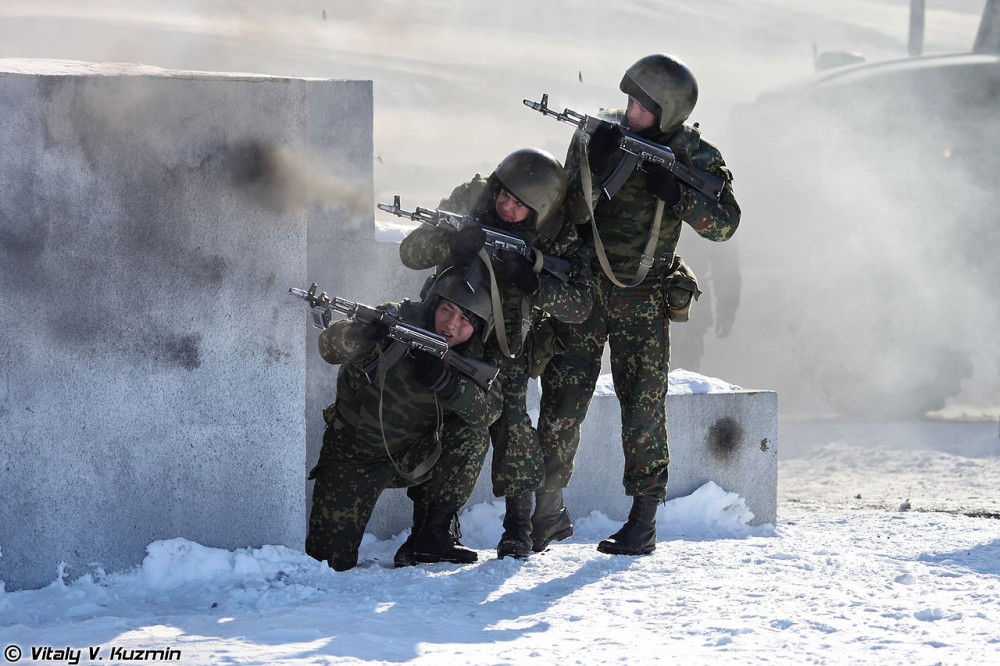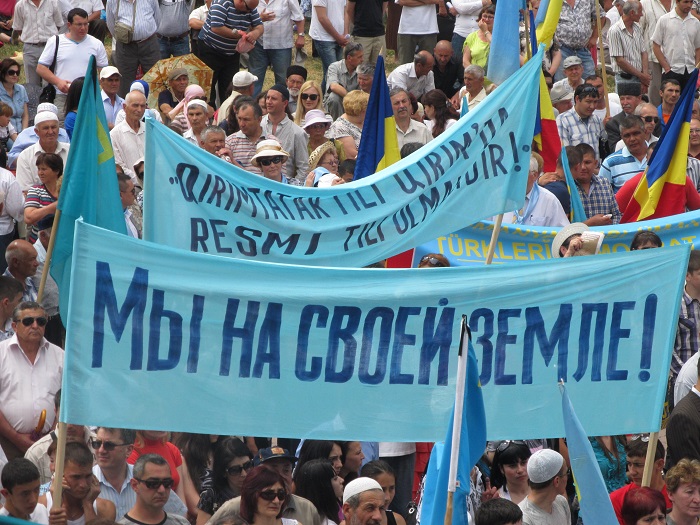
Crimea, Ukraine -- A priest of the Ukrainian Greek Catholic Church, Mykola Kvych, was released late March 16, 2014, and allowed to go home after being kidnapped by armed representatives of (the new) Crimean authorities and the so-called "self-defense."
As reported to the Institute for Religious Freedom by the Department for Pastoral Care in the Armed Forces of the Patriarchal Curia of the UGCC, the priest was held for twelve hours at the Sevastopol police station, where he was questioned harshly by local law enforcement officials who accused him of organizing provocations in Crimea.
The priest was kidnapped Saturday morning during worship. Unidentified armed men broke into the parish church of the Assumption of the Blessed Virgin Mary Ukrainian Catholic Church in the city of Sevastopol. Father Mykola Kvych, who served as rector of the parish and principal military chaplain of the Ukrainian Greek Catholic Church in Crimea, was seized and taken to an unknown destination.
At the same time, a search was conducted in Fr. Mykola's own home, where 10 bullet-proof vests were found. Father Mykola had these articles of self-defense in his possession as part of his pastoral ministry to provide humanitarian aid to Ukrainian soldiers in Crimea, who are blocked by unmarked Russian troops, and for journalists who are increasingly exposed to attacks while covering events on the peninsula.
However, the self-proclaimed Crimean government wants to prosecute the priest for possession of body armor without permission. An indictment has been drawn up and the hearing is to take place in Sevastopol in two weeks.
"Bullet-proof vests and helmets in such a case cannot be subject to any administrative or criminal prosecution," explained Maksym Paliy, doctor of law, police colonel and head of the Department of Criminal Law and Criminology at the Donetsk Law Institute, in commentary prepared for the Institute for Religious Freedom.
According to Paliy, the indictment against the priest does not contain any apparent administrative offences since "bullet-proof vests are not included in the special self-defense equipment that is limited by Article 195-1 of the Code of Ukraine on Administrative Offences."
For his part, Fr. Mykola categorically denies all the allegations against him. He said that he would remain with his faithful in Crimea in spite of the threats.
According to the Ukrainian Greek Catholic Church, during March 2014, priests have not received a single written or vocal threat with the demand to leave Crimean territory. Furthermore, all the pastors of the Ukrainian Greek Catholic Church have decided not to leave their faithful, especially in these very difficult times.
In addition, on March 13, during a press conference, Patriarch Filaret (Denisenko) of the Ukrainian Orthodox Church-Kyiv Patriarchate expressed his concerns that the communities of the Orthodox Church-Kyiv Patriarchate in Crimea would be banned "after the so-called referendum and the declaration of Crimea as Russian territory," which could then lead to attempts to seize churches and attacks on the faithful of the Kyiv Patriarchate.
It should be noted that the unlawful interference with religious observance and the disruption or threatened disruption of a religious observance is a criminal offense under Article 180 of the Criminal Code of Ukraine. Equally criminal is any violation of the equality of citizens regardless of their race, nationality of religion, as addressed in Article 161 of the Criminal Code of Ukraine.
Institute of Religious Freedom, Kyiv, www. irs.in.ua
Translated by Anna Mostovych


